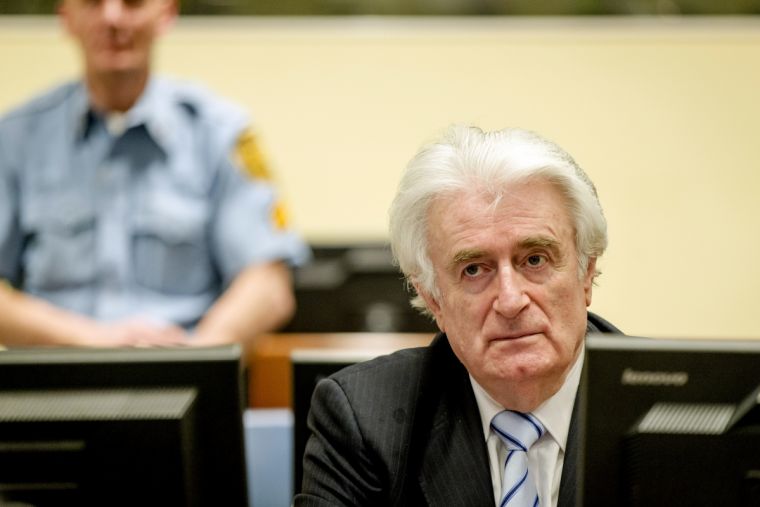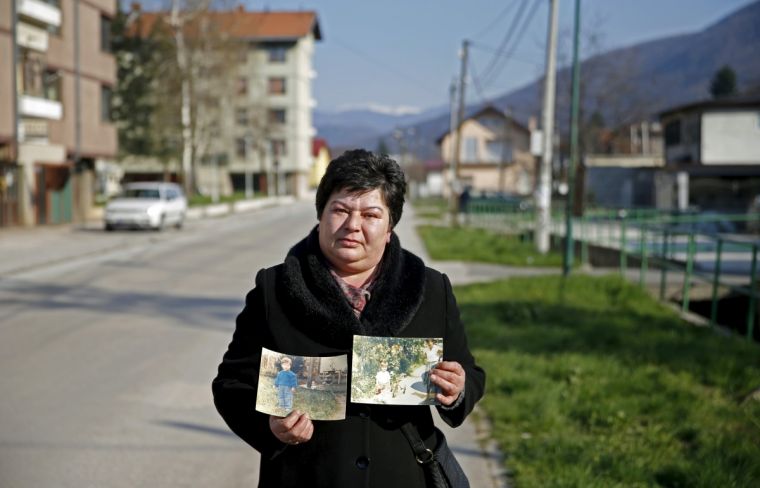Radovan Karadzic and Islamic State: The twisted logic that binds them together

So now we know the verdict on Radovan Karadzic. It has taken long enough. The Bosnian war was 20 years ago. Since then he has spent time on the run and time in prison on remand. He is young enough to be able to do some serious jail time. Good.
During the Bosnian war I was a pastor in Bristol. I had no special connection with the region and no particular insight into what was going on. I followed, as everyone did, the horrifying and heartbreaking stories coming out of the conflict. It was scarcely believable that the worst atrocities of the Second World War, which Europe truly believed it had left behind, were being repeated in all their sickeningly brutal irrationality. Sunday after Sunday we would pray for the victims and pray for peace. We ran out of words; after a year or two it hardly seemed worth it, as nothing seemed to change.
Karadzic was part of it. He subscribed to a perverted nationalism, which saw the possession of a little patch of ground that had in it no profit but the name well worth the deaths of countless thousands. The other leaders – Milosevic, Tudjman, Izetbegovic – also held to a demonic ideology of divisiveness and hate. Concentration camps, torture, rape, mass extermination – it was all back.

Even in the Balkans, it is not yet over. The Balkan countries at the heart of the conflict have made some acknowledgments of their sins, but there are deep reservoirs of support and sympathy for the leaders who betrayed them so badly and the ideology they touted so successfully. Lord Ashdown, who played such a prominent role in the region both during and after the war, reflected last year on the 20th anniversary of the Dayton Agreement that ended it. "The agreement ended a terrible, terrible dark night, but I don't believe Bosnia and Herzegovina has yet seen the dawn," he said.
"If we don't see a change in the way the international community and Bosnian leadership act, we might find the agreement has become a tragedy of lost opportunities."
His point was that the same elite was still in charge; fundamentally, the narrative has not changed.
The judgment of the Hague falls under the shadow of the Brussels bombings, emblematic of the West's conflict with violent Islamism which had barely begun in 1995. It is different, but it is the same. Again there is the indifference to morality and decency, the justification of atrocity by an appeal to a higher good – blood and soil in Bosnia, religion in Belgium and Syria.
And again, there is the crushing sense for Christians that we are praying the same prayers week by week, and they are not answered. We run out of words. We wonder if it is worth it.
It is, in fact, a long Good Friday.
That most sacred day of the Christian year is not a time for anticipating resurrection. It's just a day to mourn. It's the end, and as far as we can we observe it without hope, as the first disciples did. The Gospel accounts of the act of crucifixion are brutally simple and unadorned: "And they crucified him."
Sometimes all we can do is mourn, and cling with our fingertips to the hope that God will act. We can't say that our prayers for Bosnia were unanswered, or that our prayers for the world-wide conflict against Islamist violence are pointless. We can just hope that if they aren't answered now, they will be soon.
And we can hope and pray that Karadzic stands as a warning. To evildoers who think their position gives them immunity and that their deeds won't be brought to light, for one thing. But for the rest of the world, too: because when the fire of Islamic State is burnt out and something like normality returns to the region, the world will have to ask, "What sort of normality? How do we stop all this happening again?" According to Paddy Ashdown, it has not done too well in the Balkans.
We should pray for Syria, and Iraq, and we should pray for the faith to believe our prayers have value. In the end, we do know what lies on the other side of Good Friday; we are Christians because of Easter.











